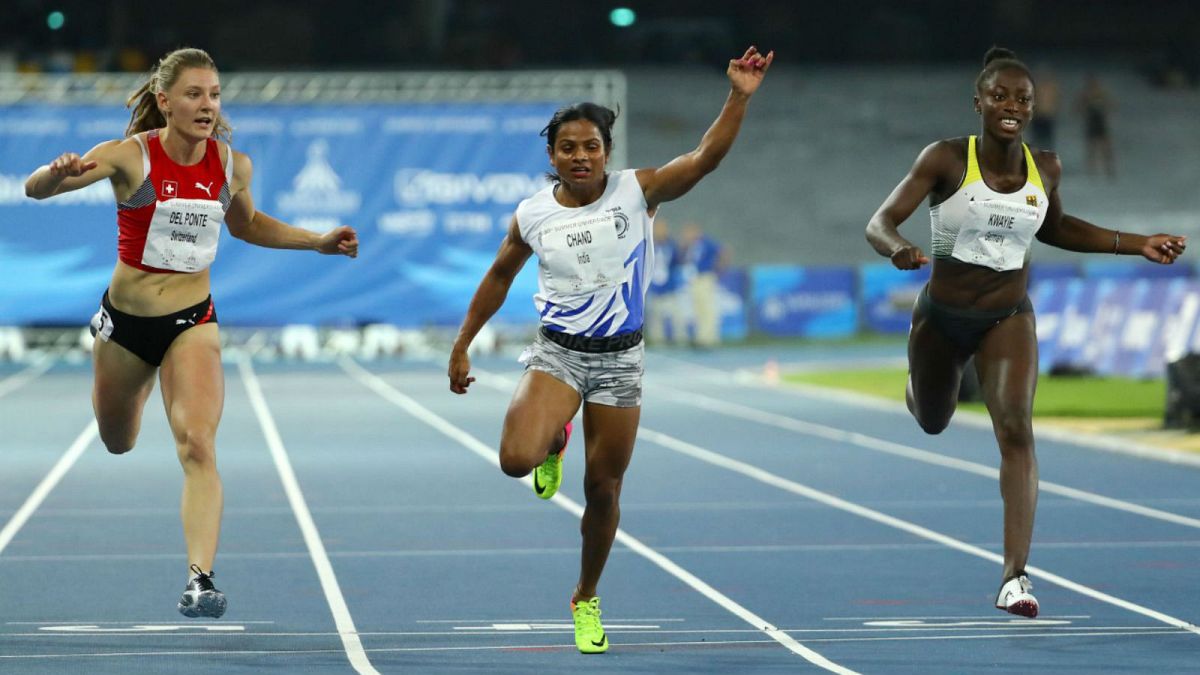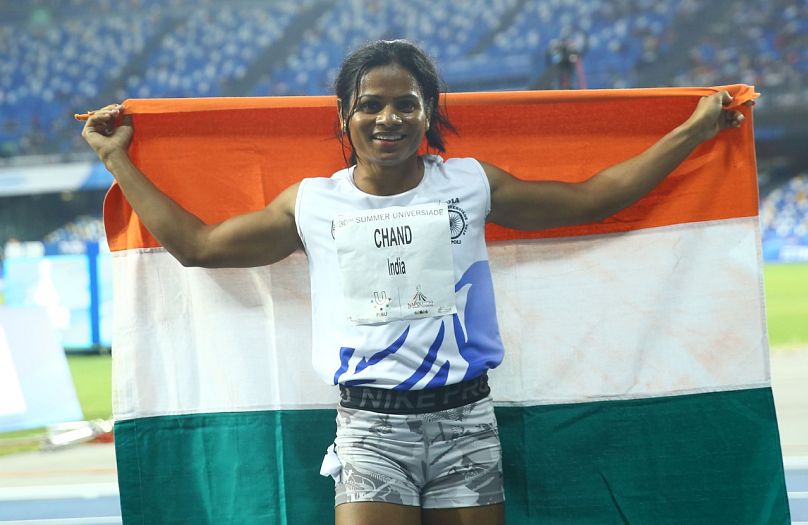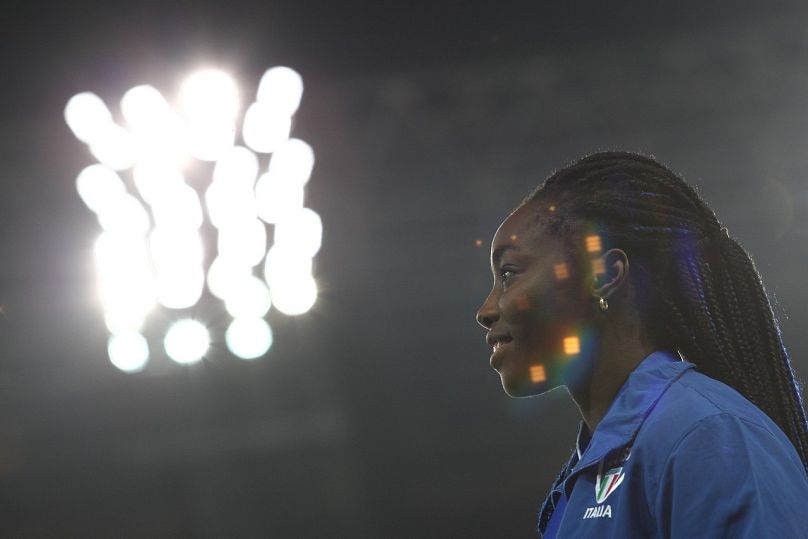As Naples hosted the 2019 Summer Universiade — the 60th anniversary of the international multi-sport event organized for university athletes — Euronews spoke to three women who have made their mark on the competition for different reasons.
As Naples hosted the 2019 Summer Universiade — the 60th anniversary of the international multi-sport event organized for university athletes — Euronews spoke to three women who have made their mark on the competition for different reasons.
Layn Rajab, Saudi Arabia
"The 30th Summer Universiade in Naples is a turning point," Layn Rajab, an 18-year-old tennis player from Saudi Arabia who competed in the games, told Euronews.
From her point of view, this is certainly the case: Female athletes from Saudi Arabian were not allowed to compete in sporting events until recently.
Now, Rajab is one of the five athletes the Saudi delegation brought to Napoli — part of Crown Prince Mohammed bin Salman's Vision 2030 project which aims to reduce Saudi Arabia's dependence on oil by developing public service sectors such as health, among other things.
While she lost 6-0 6-1 on the Naples Tennis Club court, her first international competition was still a great experience for the young athlete: "More than ever, this time, participating was more important than the result. It’s my first tournament abroad and I’m sure it won’t be the only one."
Rajab knows not everybody is ready for change in Saudi Arabia, but maintains: "For my generation, these changes are very important — we were waiting for them.
"We want to practise sports, to travel, to know other cultures and other athletes that can teach us a lot. It’s important to grow as an athlete and as people."
The Summer Universiade in Naples is by far the most exciting moment in Rajab’s fledgeling career so far, as she started playing tennis only six years ago.
Whatever the result of the tournament, her presence in Naples is a symbolic victory, both for sportswoman and for Saudi women who want to be athletes.
Dutee Chand, India
Dutee Chand, 23, also achieved a milestone in her career, becoming the first Indian female track-and-field athlete to clinch a gold medal at the World Universiade.
She won the 100m dash with 11.32 on the clock, beating the Italian Del Ponte (11.33) in a late challenge.
Chand already won the silver medal in the 100 meters at the Asia Games. The 2020 Olympic Games is her next goal.
She also made headlines as she was the nation’s first athlete to reveal she is in a same-sex relationship.
"Being in love is not a crime," she said. Chand said that the Indian Supreme Court's 2018 decision to decriminalize gay sex encouraged her to speak publicly about her sexuality.
However, she said people from her rural village have repudiated her. Her parents, two illiterate weavers, wanted Chand and her six brothers and sisters to follow their footsteps, but she soon realised that that athletics could take her far.
At 16 she entered a federal training program and fast became a national champion.
Chand has never given up despite facing obstacles, like when she was stopped by the federation for hyperandrogenism – an excessive level of testosterone - in 2014, going on to win a legal battle the following year and returning to the track.
Daisy Osakue, Italy
Italian Daisy Osakue, born in Turin to Nigerian parents, also won gold in the discus, beating German Claudine Vita and the Lithuanian Ieva Zarankaite.
Her win too has a symbolic value, which goes deeper than just the sporting victory. Just one year ago, Daisy was targeted by men who threw an egg at her from a car, causing her injuries that put her sight at risk.
The incident almost meant she missed the European Athletics Championships in Berlin in 2018 but, just 10 days after the attack, Osakue managed to participate, finishing fifth.
"I know that I will seem unpleasant, but I don't like to talk about that episode, it's something that irritates me," she said. "It's 2019, that happened in 2018. Let's move on."
Osakue has now become a champion for civil rights, revered by the Italian anti-racist movement.
She rejects the "Italian of second-generation" label too: "It seems really silly to me that we are still talking about these things — I was born in Turin, I’ve never been in my parents' country of origin.
"There they would call me a foreigner. It makes no sense to make me feel like this here too," she said.


